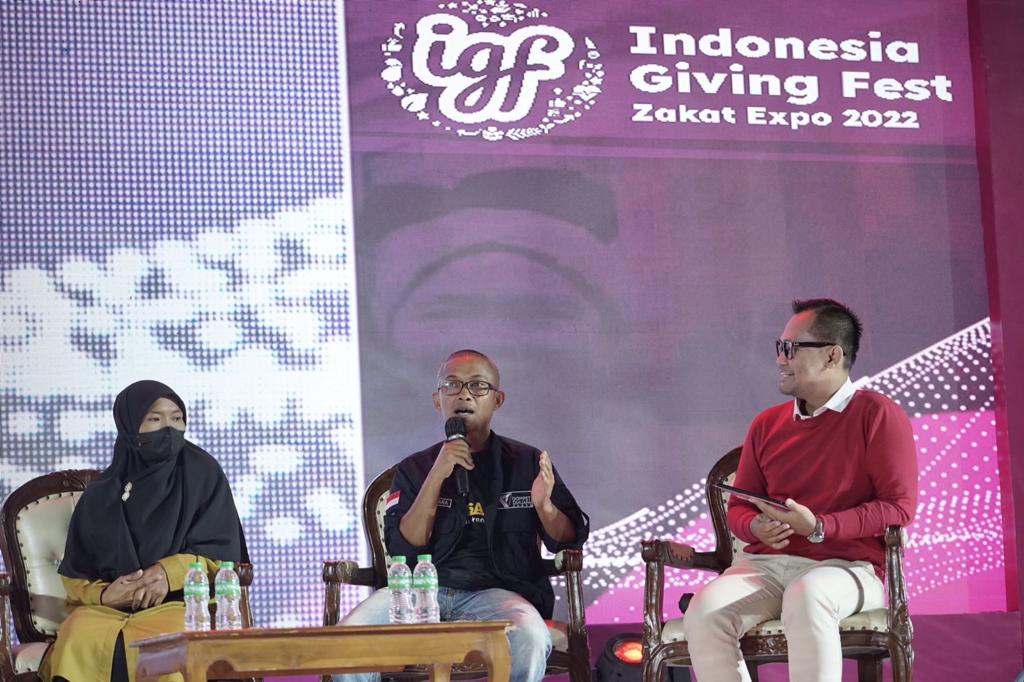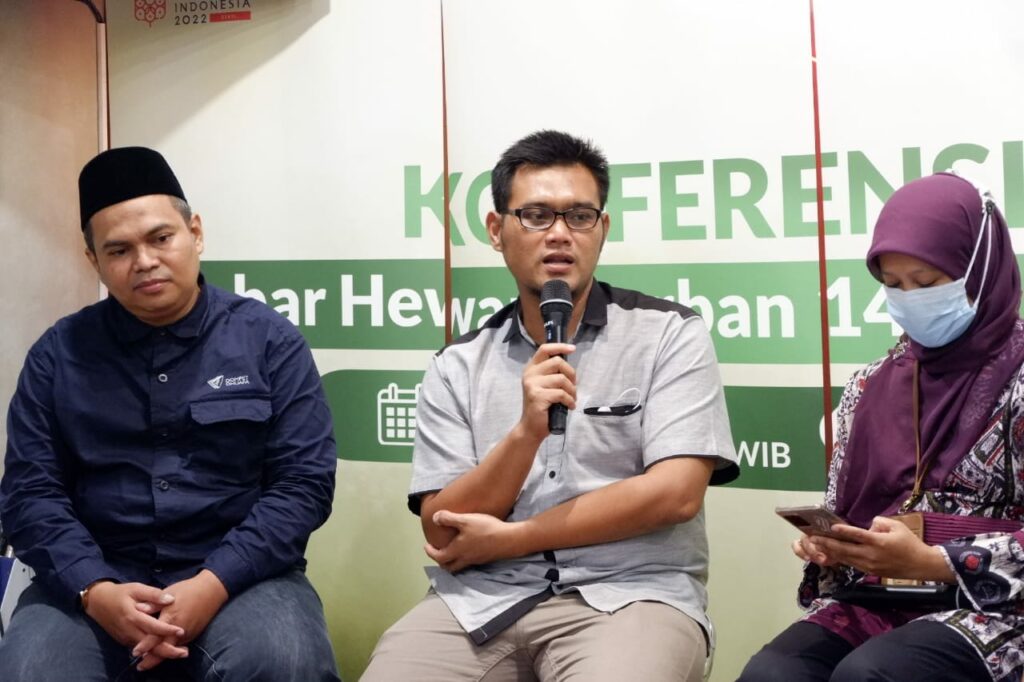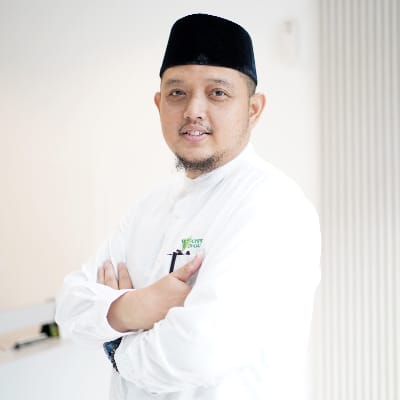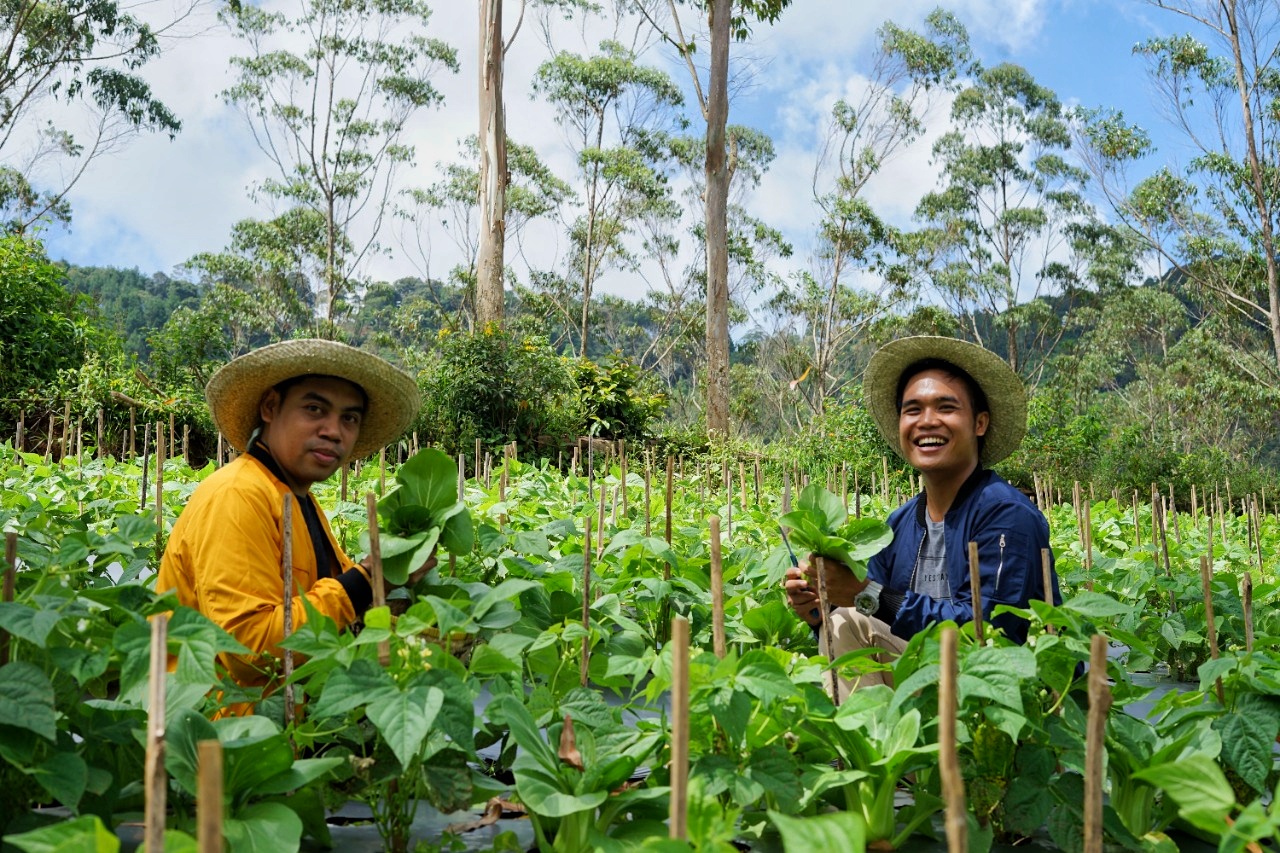JAKARTA — “Indonesia’s future lies in the village.” Parni Hadi often conveys this on various occasions. As the Initiator, Founder, and Chairman of the Board of Trustees of Dompet Dhuafa, Mr Parni always reminds Dompet Dhuafa of the importance of rolling out empowerment programs from the village. Village development is the direct support so that urbanization can be controlled.
Undeniably, many problems in village development need to be appropriately handled. Starting from village environmental issues, such as the provision of clean water, public health, and the environment, as well as the unavailability of adequate lighting; education issues, such as out-of-school children; and the issue of developing the economic potential of the village.
As an empowering organization, Dompet Dhuafa must undoubtedly be able to provide a positive role in village development. Unfortunately, one of the potentials for village development that have received less attention and minimal support is the existence of village empowerment actors.
Baca juga: Membangun Peradaban, Bambang Widjojanto Sapa Penerima Manfaat Desa Tani Dompet Dhuafa

Some readers may be familiar with the story of Ade Rukmana. Dompet Dhuafa and various media have often raised his story. The man, usually called Mang Ade, coordinates young men who are former drug addicts to become farmers in Cibodas Village, Lembang, West Bandung.
Through the Farmer Village Program initiated by Dompet Dhuafa West Java, only 2.5 hectares of land is now managed by Mang Ade and 54 program beneficiary families into almost 13 hectares of agricultural, livestock, and Edu-agrotourism areas and for the success of Mang Ade, the Empowered Farmer Village Program in his land won the Zakat Award in 2022.

There is another story of a young man named Eko Aris Setyawan who, more than ten years ago, since he was a student, coordinated smallholder farmers in Jatisari Village, Beber, Madiun, to become a supplier of goat sheep for the Dompet Dhuafa Sacrificial Animal Stocking (THK) program. He then was mandated to manage DD Farm East Java, also located in his village. The community sees his persistence in assisting farmers, managing DD Farm, and coordinating the distribution of slaughtered sacrificial meat to underprivileged communities in the Beber sub-district and surrounding areas. Eko stopped managing DD Farm East Java because the Jatisari community asked him to become the Village Head.
Baca juga: Pemberdayaan Zakat Mengubah Hidup Mereka
In Gunung Kidul, Yogyakarta, there is Alan Effendi. When he migrated to Jakarta in 2014, he returned to advance his homeland, Katongan Village, Nglipar. Starting with planted aloe vera seeds in his front yard, he spent his failed rations until he found a formula so that aloe vera could grow optimally in Gunung Kidul. Farming using pots and polybags became a solution that was eventually followed by many of his neighbours to improve the welfare of residents around where he lived. Alan not only grows aloe vera, with help from donors Dompet Dhuafa Yogyakarta, he also processes it into fresh drinks in packaging that has been marketed outside the village to Jakarta.

Mang Ade, Eko, and Alan are village empowerment actors. However, their success can happen because of the attention and support of several important things. First, there is a successful initiation that grows from them, the empowerment in the village. In addition to being agents of change, Mang Ade, Eko, and Alan became agents of development through the initiatives they created. The initiative is the ability or tendency to take proactive and independent actions in finding solutions to problems or creating new opportunities. The initiative is essential for village empowerment because it will spur self-motivation and creative thinking and maintain focus on achieving goals.
Second, the initiation of this village empowerment received support from many parties. Dompet Dhuafa is not the only party supporting village empowerment initiatives. There is a role for donors who provide funding support, local village governments that enable program coordination and collaboration, and tremendous program partners and beneficiaries who contribute to the sustainability and success of the program. Initiatives that get support could undoubtedly increase the productivity and confidence of Mang Ade and their friends.
Third, the orchestration of initiation and support produces various community empowerment products. Mang Ade and the beneficiaries of Desa Tani in Cibodas produce healthy vegetables, and Eko and Jatisari farmers produce various sheep and goat feeders. At the same time, Alan and the Katongan community produce thousands of bottles of beverage products and aloe vera derivatives. This product needs to be pushed into the hands of consumers. A sound logistics system determines the sustainability of the empowerment program. Undeniably, this is where the role of program partners is very dominant.
Baca juga: Dompet Dhuafa Jabar Gerakkan Ekonomi Masyarakat Cirebon Lewat 2 Program Pemberdayaan
As an empowerment institution, Dompet Dhuafa must continue actively seeking open space and growing the village empowerment initiative. In determining the location of the empowerment area, one must require the potential of village empowerment. This village empowerment will later become the motor of implementing community empowerment programs run by Dompet Dhuafa.
Another thing that Dompet Dhuafa can do in providing attention and support is to assist village empowerment so that they can sharply provide initiatives for solutions to village problems. Developing the capacity of village empowerment through training and technical guidance is expected to transform village empowerment into local heroes.
Remember, Dompet Dhuafa must also create a downstream mechanism for village empowerment products by village empowerment actors, the community, and other stakeholders. Creating a market for healthy vegetable products can be done with existing digital marketplace platforms. Continue to develop the availability of sacrificial animal supply through empowering farmers and other downstream programs.
Hopefully, the success of Kang Ade, Eko, and Alan as village empowerment can be followed by actors in other villages and regions. It was considered that in the first quarter of this year, Dompet Dhuafa has just launched a program in 10 regions out of the target of 60 independent areas in Indonesia for 2023. On the island of Sumatra, the area includes; Chinese Fur, Deli Serdang in North Sumatra, Sirukam, Solok and Sikabu, and 50 cities in West Sumatra. As for Java, there are in Cibodas, West Bandung and Madina Zone (Parung), Bogor Regency, West Java; Sumbang, Banyumas, Central Java; and Pundong, Bantul, DI Yogyakarta. As for Sulawesi Island includes; Sinjai and Rannaloe, Gowa, South Sulawesi, and Gili Gede Indah, West Lombok, West Nusa Tenggara.
Written by:
Prima Hadi Putra
Director of Communication, Technology and Governance Yayasan Dompet Dhuafa Republika




